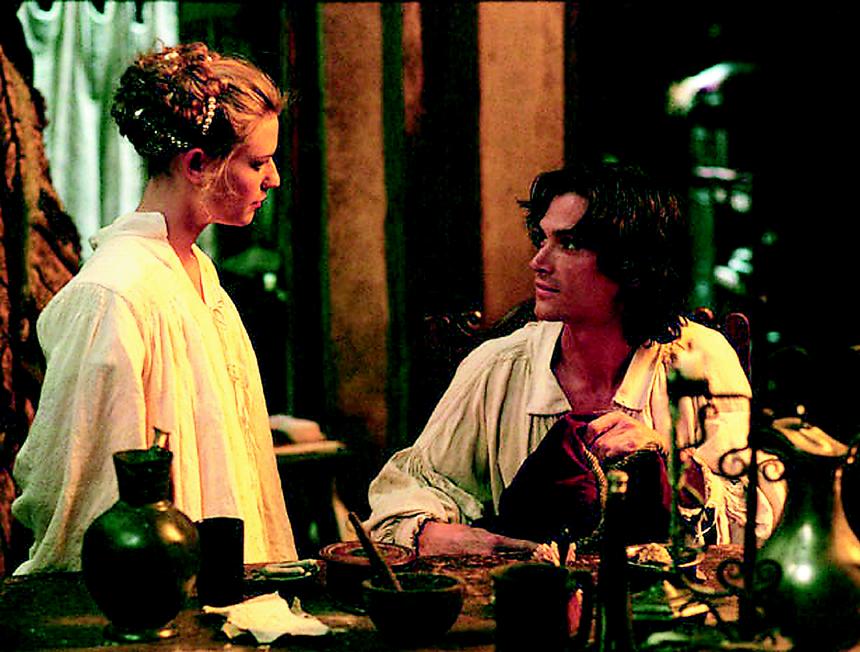This particular Anglophile romancer is set in the 1660s, a pivotal moment in English history–at least where the legitimate theater is concerned. Londonite Ned Kynaston (Billy Crudup) is a superstar in his field. He is an actor who specializes in playing female roles in Shakespeare plays. Kynaston, based on a real actor, is even lauded by no less than famed diarist Samuel Pepys as the most beautiful woman on the London stage. But the times, they are a-changing.
Kynaston's loyal (and secretly enamored) dresser, Maria (Claire Danes) has been studying his every gesture, every inflection. At night, she sets up clandestine performances at a local pub and recreates his trademark roles like that of Desdemona in Othello. Of course, woman are strictly prohibited from performing on stage by British law. But Charles II (Rupert Everett in a great cameo), has just returned from European exile, bringing none of the puritan piety of his predecessors with him. His mistress (boisterous newcomer Zoë Tapper) is enamored of the theater. The Restoration is looming. That same old version of Othello is getting tiresome. Hell and damnation, why not let women perform?
This King's new edict comes as a blessing to Maria, who suddenly becomes the toast of London society. It comes as a death knell to Kynaston, however, because his lifelong craft of genderbending is suddenly obsolete. “Women playing women? Where's the trick in that!” he grouses. As Maria's fortunes rise, self-centered Kynaston's stock-in-trade falls.
Eventually, the gears of the plot begins to show through. Maria is called to perform her Desdemona before the king. Unfortunately, she's more novelty act than skilled actress. Rather predictably, it's up to her disgraced former employer, Mr. Kynaston, to provide her the proper “coaching” in being a woman that she so desperately needs.
Stage Beauty, based on Jeffrey Hatcher's play Compleat Female Stage Beauty, is at its most subtle when dealing with issues of gender and society. Initially, Maria is a bad actress because she's only imitating her idol, a man pretending to be a woman. Kynaston, meanwhile, finds himself unable to transition into male stage roles, because he's spent his entire life cultivating exaggerated “female” characteristics. The eventual gender tradeoff between Maria and Ned results in a thrilling, transformative bit of theater history.
The concurrent romance, unfortunately, is a bit standard issue. Will initially oblivious Mr. Kynaston finally realize that Maria's only doing this because she's in love with him? Well, let's just say this one's a comedy, not a tragedy. Crudup and Danes are fine together, but their story is a bit too preordained. Plotting quibbles aside, the film is a great deal of fun. Fans of theater (both legitimate and cinematic) should find themselves drawn to opening night of this imperfect, but entertaining history lesson.



